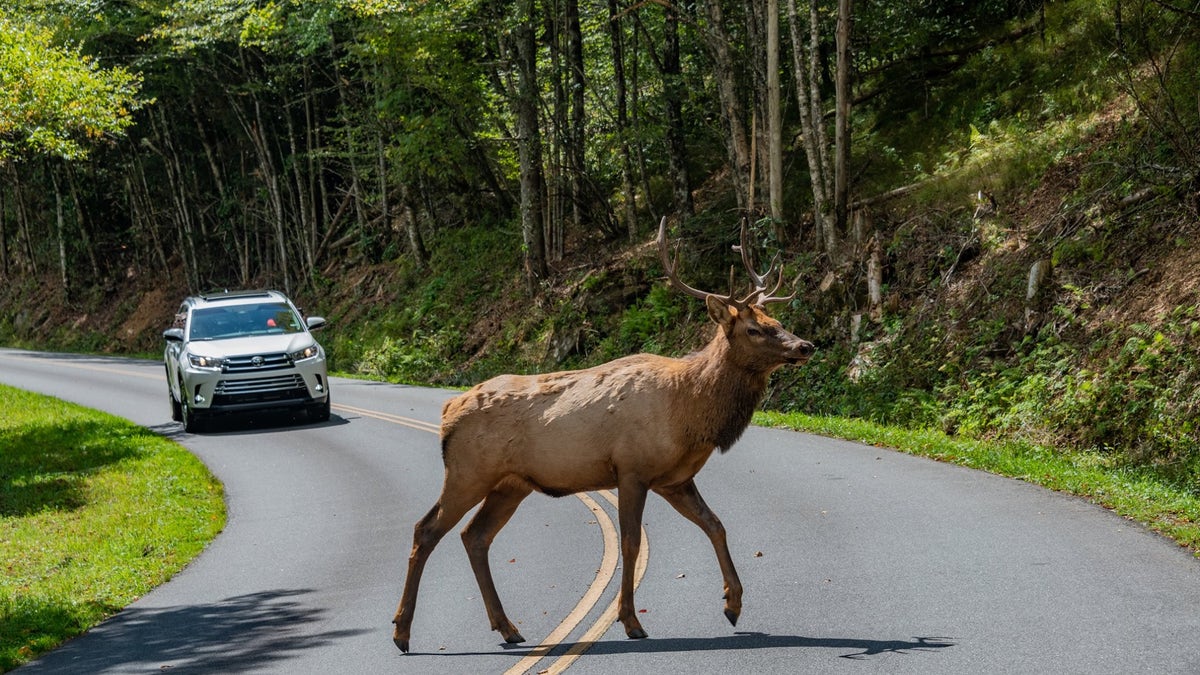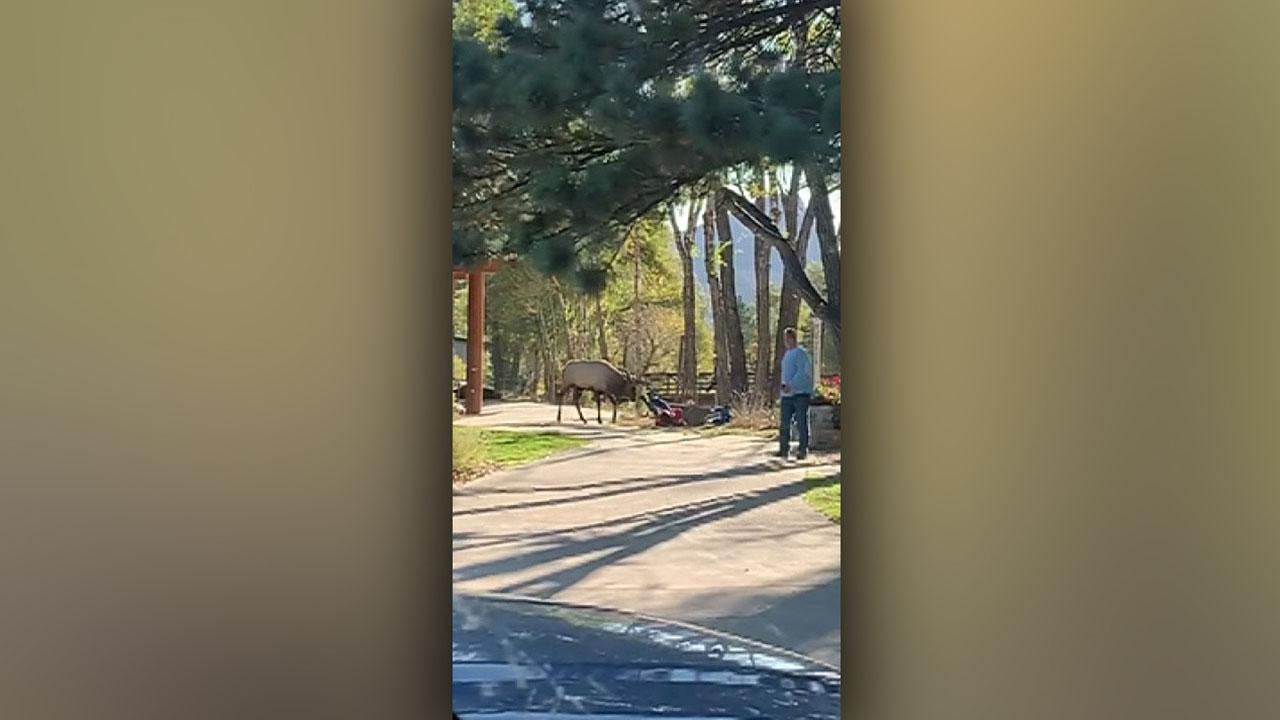Fox News Flash top headlines for Oct. 8
Fox News Flash top headlines for Oct. 8 are here. Check out what's clicking on Foxnews.com
Elk have returned to the North Carolina and Tennessee area after being absent for nearly two centuries due to over-hunting — and now the National Park Service is warning visitors and residents to watch out.
FOURTH MONTANA HUNTER ATTACKED BY A GRIZZLY BEAR IN 10 DAYS
Visitors and residents are being urged to stay away from the large animals, which are bigger than black bears and can weigh between 500 and 700 pounds, according to NPS. They are always known to be aggressive, the park service explained, stating they “charge in order to defend themselves.”

A bull elk is seen crossing the road on Heintooga Spur Road, in North Carolina, in a photo shared by Blue Ridge Parkway NPS. (Blue Ridge Parkway National Park Service)
“If you see an elk on the [Blue Ridge] Parkway please keep your distance in order to maintain their safety and your own,” the park service warned.
CLICK HERE TO GET THE FOX NEWS APP
According to the NPS, 52 elk were reintroduced to the Great Smoky Mountain National Park in 2001 and 2002. The elk population in the area dwindled by the mid-19th century, due to over-hunting and loss of habitat.
Since being reintroduced, the elk have “made a comeback in the mountains of western North Carolina” and the southernmost portions of the Blue Ridge Parkway and surrounding areas.
CLICK HERE TO SIGN UP FOR OUR LIFESTYLE NEWSLETTER
Park rangers have warned about aggressive elk at other parks, especially Yellowstone National Park.
Recently, an elk attack occurred in Colorado, injuring two people. In video of the incident recorded by a witness, a woman in Estes Park was seen using her feet to fend off a bull elk that had charged her with its antlers. A public works employee driving a Ford Ranger pickup managed to position the truck between the woman and the bull elk.
"We are in the rut (breeding season) and bull elk will very aggressively defend their harems. Bull elk will fight over breeding rights,” CPW spokesman Jason Clay said following the Estes Park incident, per Fox 31. “Let the elk move away on their own, never ever get that close because something like this could happen.”
Fox News’ Paulina Dedaj contributed to this report.

